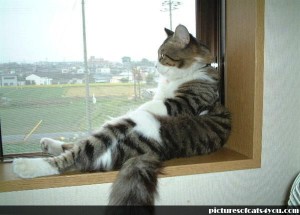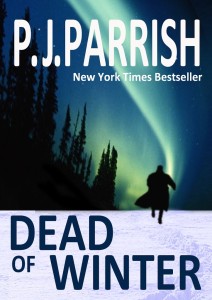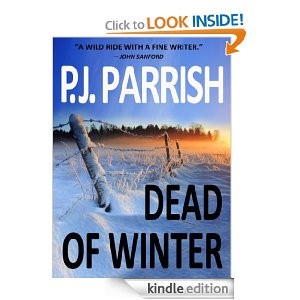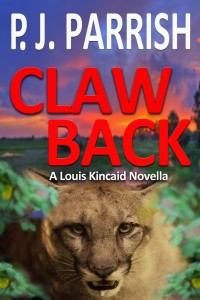I love Crash Davis. And I really love his great speech about that razor-thin line between the major and minor leagues. I was thinking about this speech the other day as I read our royalty statement from Amazon.
Because for two weeks, we made it to the Big Show. We made it to number one on a Kindle bestseller list. We had 47,000 downloads in 48 hours. We made some really good scratch.
A quick caveat: Five years ago, I was one of those folks who preached the gospel of Never Self Publish. It was the road to oblivion, the realm of the desperate. There was a special ring of hell reserved for writers who didn’t want to work hard or pay their dues. And five year ago, self-publishing WAS all that.
But ebooks have changed everything. Now major authors are buying back their ebook rights; mid-listers are finding new life for their abandoned backlist titles; newbies like Colleen Hoover are breaking into bestsellerdom; and everyone is reading the small print in their old contracts.
Five years ago, you were a fool if you self-published. Now, you’re a fool if you don’t.
Another caveat: I was really apprehensive about doing this. I had to be talked into it by two writer friends.(Take a bow Christine Kling and Sharon Potts.). I didn’t think it would work. Boy, was I wrong.
Here’s the background: Kelly and I have published twelve books with two traditional New York publishers. Only our first two-book contract from 2001 has no mention of “electronic rights” so we decided to self-pub.
We chose our second book, “Dead of Winter” because it is far superior to our freshman effort. First rule of ebook self-publishing: DO NOT PUT OUT A “LESS-THAN” BOOK.
We decided to enroll it in Kindle Select. This means you can’t load it into any other reader formats like Nook and Kobo. Why did we do this? Because Kindle Select lets you give the book away if you want (More on that later) and the book is placed in the Kindle library, which means readers can borrow it instead of buying it. (More on that too)
Also, Kindle’s formatting is pretty easy to learn. Many authors pay others to do this but Kelly is tech-savvy and we mastered the learning curve quickly. Nook’s formatting program is a bitch. (More on that later).
Kelly designed our cover (below). You can’t legally use the original one your publisher created.
Then we wrote our “description.” This is like the back copy on your book and potential readers can click on it to find out what the book is about. It’s important that this be enticing; authors often go back and tweak this endlessly to get it right. Here is what we wrote:
Available for the first time in eBook! Read the thriller that launched the award-winning New York Times bestselling Louis Kincaid series.
In the quaint tourist town of Loon Lake, Mich., a killer is taking his vengeance. One by one, the bodies of cops are found, brutally executed, with mysteriously coded death cards placed with each corpse – the gruesome signature of a psychopath. And the only sound louder than doors being locked against evil is the sound of hearts beating in terrors. Louis Kincaid came north looking for refuge, a place to forget his past. But now he’s landed in the middle of an investigation that’s a terrifying journey through a town’s fiercely protected heart of darkness.
2001 Edgar Award Finalist
Praise for DEAD OF WINTER and PJ PARRISH
“Stylish blend of mystery, knife-edge tension and a complex hero readers care about.” – USAToday
“Tense, thrilling, and your manicurist’s best friend – you’re going to bite your nails.” – Lee Child
“Full of intrigue and edge-of-the-seat suspense.” – Michael Connelly
“The author’s ability to raise goose bumps puts her in the top rank of thriller writers.” – Publishers Weekly starred review
We priced it at $2.99, loaded it up, sat back and waited for the hordes to line up at our virtual door.
After 51 days, we had sold 128 copies. I’ll do the math for you: Even at Amazon’s 70% royalty rate, that means we made $267.90. Which means I made $133.95. (Remember, there’s two of us.)
Big whoop, huh?
We decided we didn’t like the way the cover looked in the Amazon store. It looked muddy and had no pop. (I wrote a KILL ZONE blog about bad ebook covers Jan 15; you can find it in KZ archives) We downloaded a new cover.
On day 52, we pulled the trigger on Amazon’s giveaway option. We gave our book away free for three days.
In the first forty-eight hours, we had 47,000 downloads. It shot to No. 1 in Amazon’s free bestseller store for all mysteries and thrillers.
After three days, we took it back to $2.99. In the first three days, it sold almost 3,000 copies. And here’s the gravy: It was “checked out” of the Amazon library almost 1,400 times. You get an extra royalty for that which averages $1.88 per download but has gone as high as $2.85 for us.
“Dead of Winter” rose to No. 15 on the PAID mystery/thriller bestseller list. It made it to No. 39 on the paid list for ALL Kindle books (that includes all fiction and non-fiction, classics, cookbooks and even the Bible). We — P.J. Parrish — suddenly appeared on Amazon’s Most Popular Author’s list. (I didn’t even know it existed).
We did no advertising. Nada. We announced it on Facebook and sent out a newsletter blast (But that goes to our fans who’ve already read it; we were trolling for new fish). The only thing we did was to take a day to contact blogger sites that are dedicated to giveaways. (There’s a whole cottage industry devoted to this. See Christine Kling’s FOR WRITERS website for advice on this. Nancy Cohen also listed some here at KZ in her February 13 post.)
The book continued to sell at the same fast rate through all of January and into February. Our borrows increased. Today, as I write this, the “glow” is over. (That’s what Christine calls that big sales bump after a giveaway). Sales are on a slow descent but even last week, the book sold an average of 112 books a day.
Other benefits I didn’t see coming: Our reviews for “Dead of Winter” went from 32 to 93, all from readers who said they had never read us before. The book was featured on dozens of blogs. And get this: We saw a bump in sales for our other ebooks (based on Amazon ranking). The ones put out by Pocket, priced at $7.99 moved up. But we saw a significant bump for the ebook that our other publisher priced at $4.08. That book, “An Unquiet Grave,” published 7 years ago, went from Amazon Siberia up to no. 7,057 and today is hanging on at No. 64 on the Private Eye Bestsellers list. Which illustrates, to me at least, the important of being able to price your ebooks right.
And I just found this out an hour ago: our new book HEART OF ICE (due out next week) has crept onto the bottom of the Amazon PI bestseller list at No. 97.
Now one word here about Nook et al.
While we were doing “Dead of Winter” we self-published CLAW BACK. Because it was an original novella, we wanted to make it available to all formats. We went to the Barnes & Noble author website to find out how to self-pub it. It was like trying to cut your way through a thicket with nail clippers. We bought the Scribners software to learn Nook formatting but were defeated by its intricacies. (You have to decide where your tech breaking point is).
We sent “Claw Back” to Smashwords, a formatting company. Smashwords also distributes your ebook to all the non-Kindle sites. A week went by and the book still wasn’t in the Nook store. We emailed; B&N said it was in the system. Two more weeks went by. Crickets. B&N just kept saying it would appear “soon.”
On Jan. 17, we pulled it and enrolled it in Kindle Select at $3.99. Sales were small. We dropped the price to $2.99 and it took off. Sales aren’t as great as “Dead of Winter” but they are steady. As I write this, “Claw Back” is No. 95 on the police procedural bestseller list. And we haven’t given it away yet because we want to time it as a “slingshot” prelude for our new book.
I’m not trying to bash B&N here. God knows I don’t want to see any bookstore die. But a report in Slate this week says that contrary to earlier reports, losses in the Nook division are going to grow this year rather than staying flat. They didn’t exactly make it easy for me as an author to reach my readers.
So what’s the take-away here?
I won’t turn my back on traditional publishing. I still want “tree” books in my readers hands, if that is the delivery method they prefer. But I want to reach as many readers as I can and I want to do in ways that are creative and flexible. So I will continue to self-publish.
Because you can hit a gork or a flair and make some good money. If you’re good and lucky you can even make enough to live on so you can write more. But maybe even more important, you get control. YOU decide when to put your book out there. YOU decide what the cover looks like. YOU decide what the price should be. And YOU decide exactly what direction your career is going to go.
Oh, there’s one more cool thing: You can actually make sense out of those Amazon royalty statements.
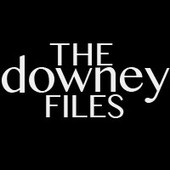 Recently, since NPR seems to be running an interminable series on African leaf cutter ants, I’ve devoted much of my commute to listening to podcasts instead. And thanks to a tip from a friend, I’ve become hooked on one that’s absolutely genius, and perfect for writers and/or fans of the craft (or anyone, really): The Downey Files. Created by the Chris Downey, former writer and producer for the TV shows The King of Queens and Leverage, the description says it all:
Recently, since NPR seems to be running an interminable series on African leaf cutter ants, I’ve devoted much of my commute to listening to podcasts instead. And thanks to a tip from a friend, I’ve become hooked on one that’s absolutely genius, and perfect for writers and/or fans of the craft (or anyone, really): The Downey Files. Created by the Chris Downey, former writer and producer for the TV shows The King of Queens and Leverage, the description says it all:




